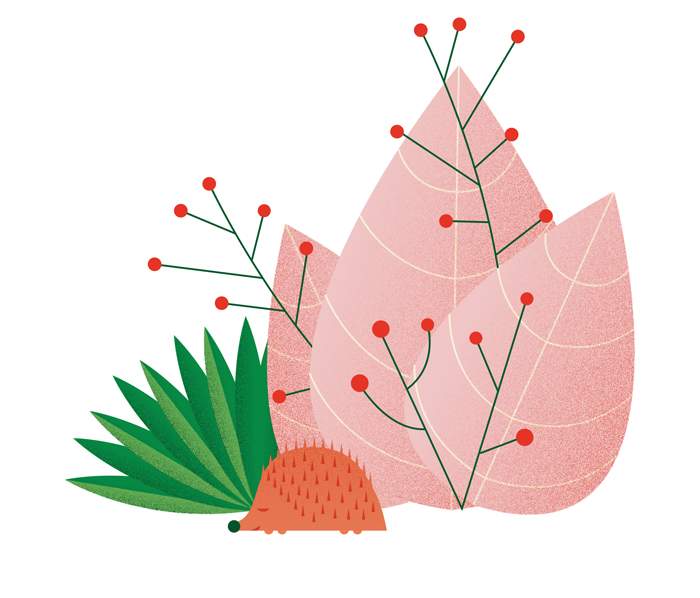As long as we are the apple of everyone’s eye and have all our needs and desires satisfied, as long as there is nothing at all that we want that we don’t have or can’t have now, life is a wonderful dream. But the instant that we want what YOU have, the seeds of envy are planted.
For instance, your body. It’s really, really nice. I bet it would look great on me. The more I think about it, seeing you in that body makes me feel fat (how dare you, by the way?), and I can’t help secretly hoping that under that shirt are some major arm waddles. But, be well.
Envy, the passionate longing for something that someone else possesses—an attribute, a quality, or even a thing—is rooted in a sense of inferiority. The Canadian philosopher Jean Vanier concluded that envy comes from people’s ignorance, or lack of belief in, their own gifts.
And despite how it seems, envy’s gaze rests less on the thing desired and more on the distress I feel that you have it and I don’t. Or as Aristotle wrote, “Envy is pain at the good fortune of others.”
Sometimes envy is fairly benign. We may wish that we had the technological savvy of a 10-year-old computer whiz, but we probably do not begrudge our nephew for his superior bits and bytes or his nimble fingers.
Some envy may be more corrosive. The Queen envied Snow White her beauty and this led to attempted murder, mayhem, and ultimately the Queen’s demise. Richard Nixon’s envy of power caused him to set Watergate in motion, which led to his resignation. And so on.
One of the more beguiling things about envy is that it is difficult to notice. Part of this is the nature of denial: We don’t like feeling or having less than. It makes us uncomfortable. And unlike jealousy, which is a heated reaction to a (real or perceived) threat to something you believe is rightfully yours (It was mine, and now YOU have the Precious, and this enrages me), envy doesn’t incite anger quite so obviously. Simmering resentment, maybe. But crimes of passion? Not so much.
Still, letting envy go unobserved can cause it to run rampant in ways that make experiencing happiness difficult. Listening to envy’s shadowy whispers can make us feel squashed, bitter, living our lives imprisoned by our own beliefs that we are somehow less than others because we don’t possess what they possess. Wanting what we don’t have but what we think others do is a sure-fire way to misery. And if envy focuses on what is unattainable, such as youth, owning the crown jewels, or having different DNA than what you were born with, then there is no way for the envier to win, which can leave us feeling even smaller.
The Roots of Envy
Like so many of our primal urges, there was a time when envy served a purpose in helping to keep us alive. Way back when, if we missed out on something everyone else in the tribe had or knew, we might find ourselves waking up in the cave alone, and looking delicious. Deeply embedded into our grey matter are brain networks, habits, and schemes that prevent us from becoming toothpicks for lunching lions.
Envy is no longer specifically geared toward our survival but when we imagine ourselves getting the short end of the stick, survival instincts can still kick in.
Modern ideas like FOMO, or Fear of Missing Out, bathe in the waters of envy. Not receiving an invitation to meet the visiting company bigwigs, for example, could lead you to believe that you’re being passed over for a promotion. Missing out on your friends’ party can heighten your anxiety that others are having more fun than you.
But one of the challenges with envious thoughts is that they aren’t always rational. I have a friend who casually remarked feeling envious of a couple in her building who traveled whenever they wanted. “But you hate traveling!” I said. “So you envy what you don’t really want?” How intriguing. It made me wonder what my friend was really longing for: An idea of freedom or of seeing new things? (Though she never seems happier than when she’s home.)
Sometimes, we long for an elusive thing that may not even exist. It’s like Cary Grant once said: “Everybody wants to be Cary Grant. Even I want to be Cary Grant.”
No matter the extent or object of our envy, a particularly ornery thing about it is that even when you get the toys, the promotion, or the well-toned physique, you can still feel envious. There are no limits to wanting what we don’t have, especially if we believe that it will make us happier.
If we could notice the ways we begrudge others’ success, we might then be able to pause and ask ourselves: Is this really who I want to be?
Even worse, the brain’s habit of trying to rid itself of the discomforts of envy through rumination about how unfair it all is and how resentful we are, only etches the negative thoughts even more deeply into our psyche.
In fact, when we leave envy unattended, it nurtures our sense of inferiority. You may not like that your neighbor can afford to send their kid to private school, but does spreading rumors about them really give you a better opinion of yourself? More telling: Our brain actually registers envy as pain. In one study, participants were asked to think about envy-inducing situations, such as meeting a school peer a year after graduation, with the awareness that this person had now surpassed them in job quality, income, freedom, and attractiveness. Ouch. The participants’ fMRIs showed the dorsal anterior cingulate cortex lighting up a pain response that the researchers called “the distress of social exclusion.”
The study also made the point that the pain of envy is all about “me” versus “you.” And in a way, it makes sense. Humans are social creatures, so a significant amount of our self-worth comes from comparing ourselves to others in our peer group: Are we better off or worse off than “them?”
However, once these envying comparisons start to churn, they are often accompanied by an offshoot known as schadenfreude, the pleasure derived by another’s misfortune. This is the shadow we lurk behind when envy turns our minds to wanting bad things to come your way—sometimes just because you experience happiness.
If we could notice the ways we begrudge others’ success, we might then be able to pause and ask ourselves: Is this really who I want to be?

But, There’s An Upside
In its grossest form, envy can drive us to unhappiness, dissatisfaction, self-loathing, and feeling just plain mean. In a more enlightened viewing, however, envy can be an important key to awareness because it illuminates our deepest longings. Sure, it could be our longing for a hybrid car, our neighbor’s tidy backyard or a winning lottery ticket, but when we look underneath these transient hungers we might notice the roots of our greatest aspirations. Maybe we think an eco-friendly car will make us seem more hip, but if we could recognize that “envy is here,” we might be curious enough to be in touch with a yearning for a new sense of identity, a desire to trade in the old, practical you for an upgrade to something that shows your participation as a proud member of planet Earth—now that’s cool!
Maybe it’s even a case where envy inspires action: not merely our desire to finally clean up the brush pile in the backyard, but letting it help nudge us toward our higher selves.
Is there any reason why we can’t use envy to help us discover and act upon our own path to joy and purpose?
 Mindfulness makes the claim that we can use anything to help us see more clearly. Your envy over a colleague’s rise in the company might wake you up to how you’ve been simply gliding in your job, and inspire you to go back and brave school to finally finish your master’s degree, or even to look for another career.
Mindfulness makes the claim that we can use anything to help us see more clearly. Your envy over a colleague’s rise in the company might wake you up to how you’ve been simply gliding in your job, and inspire you to go back and brave school to finally finish your master’s degree, or even to look for another career.
Of course, getting to this awareness requires tolerating the potentially unpleasant experience of feeling envious. But when we look deeper at envy we may see that underneath is the longing for what might be an unfulfilled need. Our tendency might be to think we want what you have, but under our feelings of lack might be the awareness that our envy has drawn us a map to the rich possibilities of the human experience.
The important point is allowing envy to reveal a direction, without being pulled into a cesspool of comparison and mini-mind.
As we familiarize ourselves with our own signs of envy, including our favorite envious thoughts, suddenly we have choice.
Shift Gears
Once envy gets revved up, it’s very compelling. Misery is often seen in the company of self-pity and those two easily roll into a story of how unfair it all is. And guess what? Sometimes you’re right! Life can be unfair. So we have a choice. Wallow in that miasma or we can stop, notice, and choose to investigate old familiar thoughts and feelings.
The good news here is that studies suggest that simply being able to label what is going on in our thoughts, emotions, and body calms that disturbed center of the brain down. In one case, brain imaging showed that when subjects were able to label strong emotions there was a decrease of activity in the fear-generating amygdala.
And if we can notice envy without judgment, we can learn to mindfully observe it without getting caught up in the story. As we familiarize ourselves with our own signs of envy, including our favorite envious thoughts (I wish I looked that good… It’s not fair that I wanted a car like that and you bought one… Everybody at work thinks you’re so special), then suddenly we have choice. When we can notice our habitual responses, we can change the wiring of the brain by consciously focusing our attention, rather than staying in the tuned-out territory of automatic pilot.
The minute we notice that envy is present, and can name it, we have disrupted its strong pull. With this relatively small shift toward awareness, the prefrontal cortex is activated, engaging the higher-level functions of vigilance and discrimination. The mind is like the sky and our envy is just one more cloud passing by.
We can also train ourselves to separate out the thoughts, feelings, and physical sensations that are stirred up when an envious moment arises. By breaking down our experience of envy into its components, it is generally much easier to stay present, open, and curious. We can learn to observe the cascade of habitual responses that usually occur when envy is triggered, like self-pity, anger, resentment, and generally wishing bad things for the object of our envy.
When we can practice being present to all we notice, we can meet those feelings of smallness with a largeness of heart big enough to help quench the fire of limitless desire. We don’t even need to resist envy, just allow ourselves to notice what it’s pointing to as we stay present and let our awareness help us choose the life we want.

Investigation: The First Signs of Envy
All emotions show up in our bodies in ways unique to us. But in order to use mindfulness to halt the downward spiral of envy—and to see what underlying longing it may signal—we need to recognize it.
Here are some common sensations experienced alongside envy. When you feel envious and check in with yourself, what do you notice?
- A buzzing in your ears
- Dryness in your mouth or constriction in your throat
- Clenching in your belly
- A cascade of self-criticism or thoughts like, “I wish I had their luck.”
- A sensation of sinking, holding, rising, or falling
- Tightening of your jaw, tension or pulsing around your eyes
- Increased heart rate
- A sudden hyper-awareness of your perceived flaws (feeling your “fat” thighs, for example)
- Feeling of heat rising through your body or an all-over prickliness
An Antidote to Envy
What happens when the object of our desire moves from fantasy to reality?
Envy springs from believing there is something we want that someone else has. What happens when we ask ourselves whether it’s really what we want? Try this:
- Imagine that you’re able to purchase the mansion of your dreams.
- Now imagine owning that mansion 20 years from now. Be as detailed as possible: Who will clean it? Will you be paying the taxes and upkeep? How will it feel to be in that big house alone at night?
- What do you notice about your envious feelings now? Are they still as strong?
Often when we take our envy to court, it can help us see whether pursuing this path will truly make us happy or not.
A Practice to Quiet Envy
Instead of seething inside, and hating yourself for it, try a little compassion.
Another possible antidote for debilitating envy might be found in wishing for the happiness of those you envy.
- Close your eyes, take a few anchoring breaths, and let yourself see and feel strong awareness of the object of your envious thoughts. If you are willing, silently say to yourself, “May the object of my envy be happy; (pause) may the object of my envy be healthy; (pause) may the object of my envy be peaceful.”
- Say these phrases several times, or use your own words. Take time to pause between each wish for the other’s well-being. What do you notice?
Practice: Unhook from Envy with Awareness
By recognizing their earliest signals, we gain control over our envious thoughts.
When we investigate envious thoughts and emotions, and notice how the body responds to our feeling lesser, we can recognize the signs of envy before they start to take root in the brain.
The next time envy begins gathering strength, try this check-in:
Tune in to the present moment by bringing awareness to sitting, standing, or lying down.
Inhale and take a moment to notice where you feel that in-breath most vividly, such as in your belly, chest, rib cage, nose, throat, or mouth.
Bring to mind a situation of someone having something you want—a nice car, a nice house, a nice job. Maybe they’re talented or attractive, good with people or young—anything you do not feel you already possess, but want. (Choose a small basket of envy, rather than a bushel—just enough to help you notice what happens inside when envy takes hold.)
Picture this situation in as much detail as possible: the image of what you envy, who you’re with, where you are, what you’re doing when envy arises. The more detail the better. Keep breathing and stay with your story of envy, as best you’re able.
What thoughts do you notice running through your envious brain? What other emotions accompany envy on its destructive journey? Do the physical sensations change or move?
Since envy triggers pain responses in the brain, you may notice how quickly your attention wanders from the task of being present to your envious feelings. To the best of your ability, see if you can notice when your attention runs screaming, and gently bring it back to investigating the sensations evoked by envy.
The sooner we can gently learn to notice what happens when our thoughts run to envy, the sooner we can come out of autopilot and recognize that we are in a familiar habit of mind. The minute we recognize that envy is here, we can choose to come back to our breath, notice the sensations coursing through our bodies and return to the present moment.
This article originally appeared in the August 2016 issue of Mindful magazine.
The post The Upside of Envy appeared first on Mindful.
from RSSMix.com Mix ID 8196908 http://redirect.viglink.com?u=http%3A%2F%2Fwww.mindful.org%2Fthe-upside-of-envy%2F&key=ddaed8f51db7bb1330a6f6de768a69b8

No comments:
Post a Comment